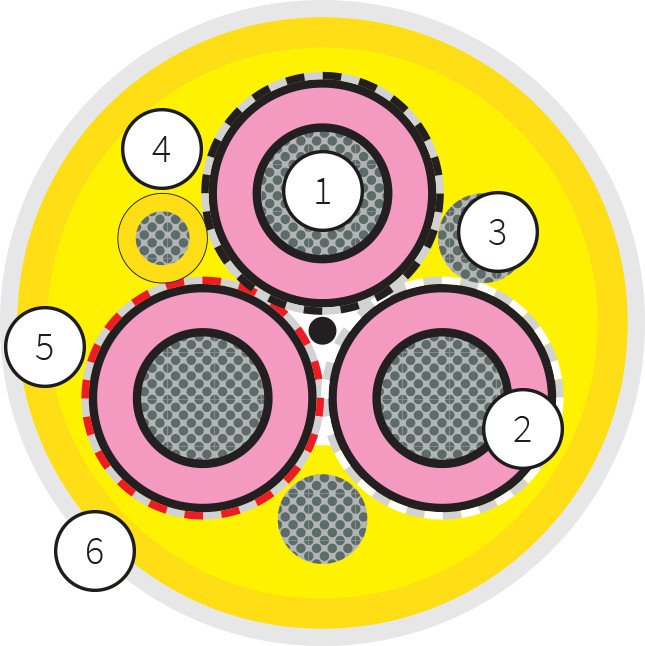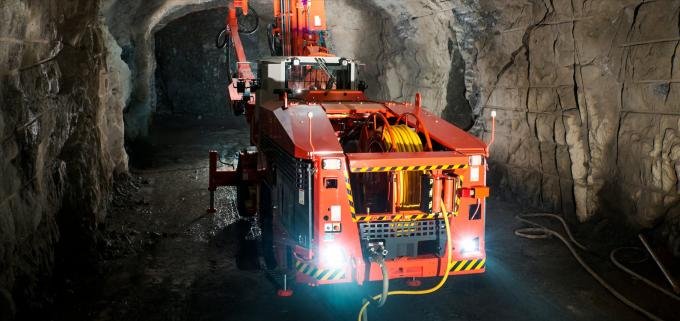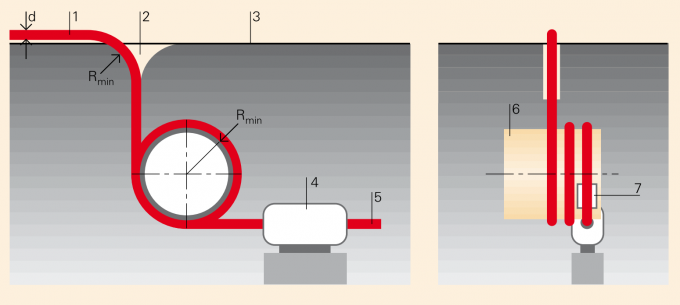

When it comes to reliable, high-performance cabling solutions, Chloro Sulphonated Polyethylene (CSP) cables stand out as one of the top choices for harsh environments.
Whether you're involved in heavy industry, oil and gas applications, mining, or outdoor infrastructure projects, CSP cables offer a unique blend of durability, flexibility, and resistance to environmental hazards. But what exactly is a CSP cable and why is it so highly regarded?
In this article, we’ll dive into the features, advantages, and applications of CSP cables, helping you understand why these cables might be the right solution for your needs.
Understanding CSP: What Makes It Special?
Chloro Sulphonated Polyethylene (CSP), sometimes referred to as CSPE, is a thermosetting (cross-linked elastomeric compound). It is used in cable sheathing and insulation to deliver high performance across various demanding applications.
The chemical structure of CSP gives it unique properties, including excellent resistance to weather, chemicals, oils, and flame. CSP’s versatility as a sheathing material makes it ideal for environments where cables are exposed to harsh conditions, whether it's the scorching sun, heavy industrial activity, or chemical exposure.
Let’s break down the key features of CSP cables and why they’re important:
Key Features of CSP Cables
Resistance to Extreme Temperatures:
CSP cables are designed to perform across a wide temperature range, from -40°C to +120°C. This makes them ideal for outdoor use in extreme climates or high-temperature environments such as industrial plants. For projects located in areas with fluctuating temperatures, CSP cables maintain their flexibility and performance, even in freezing or high-heat conditions.
Durability and Mechanical Strength:
CSP cables are renowned for their exceptional mechanical properties, including resistance to impact, abrasion, and crushing. These cables are built to withstand mechanical stress in tough environments, making them perfect for industries like mining and offshore oil drilling, where equipment and cables are exposed to wear and tear.
Superior Weather and Ozone Resistance:
One of the reasons CSP cables are popular in outdoor applications is their extreme resistance to weathering. Unlike many elastomers that degrade under long-term exposure to sunlight and ozone, CSP maintains its integrity and flexibility, even after years of exposure to UV rays and the elements.
Chemical and Fluid Resistance:
CSP is resistant to a wide range of chemicals, including hydrocarbons, oils, greases, solvents, and fuels. This makes CSP-sheathed cables ideal for applications in processing plants, oil refineries, and chemical factories, where cables must resist fluid exposure and contamination.
Fire Resistance:
CSP offers excellent fire-resistant properties, which is crucial for industries where fire safety is a concern. Although CSP contains chlorine (which means it’s not suitable for halogen-free applications), it still provides strong fire resistance for environments where fire hazards exist.
Processing and Manufacture of CSP Cables
The manufacturing process of CSP cables involves compounding CSP polymers with additives to produce a material that meets specific performance requirements. Once compounded, CSP must undergo vulcanization, a process that cross-links the polymer chains to enhance durability and elasticity.
Vulcanization is typically carried out using a sulfur-based system, although peroxide can also be used in certain cases. This process ensures that the material gains its desirable mechanical and thermal properties, making it ideal for cable sheathing.
Once vulcanized, the CSP polymer is extruded through a single-screw process, where it is molded around the cable. The vulcanization can be done using continuous vulcanization (CV) tubes or autoclave processes, depending on the cable design and manufacturer requirements.

Key Applications of CSP Cables
Due to their excellent mechanical, thermal, and chemical resistance properties, CSP cables are used in a variety of challenging applications across different industries:
1. Oil & Gas Industry
In the oil and gas sector, cables are exposed to extreme temperatures, chemicals, and rough mechanical handling. CSP cables are particularly well-suited for use in offshore drilling rigs, refineries, and oil platforms, where reliability is essential.
The fluid resistance of CSP ensures that the cables maintain their integrity when exposed to oils, greases, and hydrocarbons commonly found in these environments.
2. Mining
In the mining industry, cables are often subjected to mechanical stress, including crushing, abrasion, and impact. CSP trailing cables are designed to withstand these conditions, providing reliable power transmission for mining equipment. The chemical and temperature resistance of CSP also makes these cables suitable for underground mining applications.
3. Outdoor Infrastructure
CSP sheathing is perfect for outdoor infrastructure projects that require cables exposed to sunlight, ozone, and harsh weather conditions. CSP-insulated cables are used in power distribution networks, telecommunications, and public utilities where long-term durability and weather resistance are crucial.
4. Processing Plants and Factories
In chemical processing plants and manufacturing facilities, CSP cables offer excellent resistance to chemicals, solvents, and fluids that could otherwise degrade ordinary cables. The flame resistance of CSP-sheathed cables also adds an extra layer of safety in environments where fire hazards are a concern.
5. Marine and Offshore Applications
Thanks to its resistance to water and moisture, CSP cables are also used in marine environments where exposure to saltwater, chemicals, and physical stress is a constant concern. These cables are common in shipping, oil platforms, and other offshore applications.
Why Choose CSP Cables?
If you are looking for a reliable solution for demanding environments, CSP cables offer multiple advantages that make them worth considering:
Durability in Harsh Conditions: The ability to withstand high mechanical stress, extreme temperatures, and chemical exposure makes CSP cables ideal for harsh environments such as mines, oil rigs, and outdoor installations.
Cost-Performance Balance: While CSP is not the cheapest polymer available, its performance justifies the investment. By opting for CSP sheathing, you ensure that your cables can handle tough conditions and deliver reliable performance over time, reducing the need for frequent replacements.
Versatility: Whether you're in the mining industry, oil and gas sector, or public utilities, CSP cables can be tailored to meet the specific needs of your project. They can be compounded to achieve different levels of temperature resistance, chemical resistance, and mechanical strength, making them adaptable to almost any industrial application.
Common Standards for CSP Cables
To ensure quality and reliability, CSP cables must meet certain industry standards. Some of the key standards governing the use of CSP compounds in cables include:
Meeting these standards ensures that CSP cables can perform reliably in their intended applications and meet safety and performance expectations.

CSP Cables – The Smart Choice for Tough Environments
Chloro Sulphonated Polyethylene (CSP) cables provide a reliable and durable solution for industries that operate in harsh environments. With their resistance to temperature extremes, chemicals, and physical stress, CSP cables are an excellent choice for mining, oil and gas, outdoor infrastructure, and marine applications.
By investing in CSP sheathed cables, you ensure that your cabling systems can withstand the challenges of demanding environments, providing long-term reliability and safety. Whether you're working in a chemical processing plant or offshore oil rig, CSP cables offer the performance and durability you need to keep your operations running smoothly.
Make the smart choice and explore the wide range of CSP cables available for your specific needs today!
With their proven track record in tough applications, CSP cables are the ideal solution for industries that demand the best in performance and reliability.